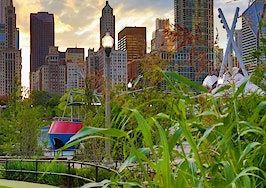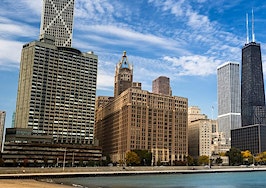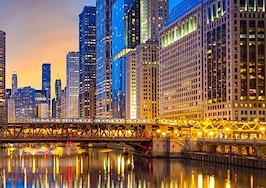- Upon completion Serosun Farms will feature 114 luxury homes.
- The working farm's main crop is organic horse hay.
- Roughly 75 percent of the community's 400 acres are reserved for farming and open space restoration/preservation.
Nationally, the development of “agrihood” communities is a growing trend, as more homeowners are attracted to the idea of living on a working farm.
The housing concept’s popularity is such that agrihoods are now being developed on reclaimed land in suburban and infill locations offering the farm lifestyle with a modern twist.
Roughly 50 miles northwest of Chicago, developer John DeWald has began the build out process for Serosun Farms, a 400-acre agrihood community in Hampshire, Ill.
Upon completion the community will feature 114 custom, luxury homes that each sit on lots of one acre or more. Homes will be centered around an existing 160-acre farm, whose main crop is organic horse hay, and an equestrian center, which is owned by DeWald’s sister.
Five acres of the community has also been set aside for the growing of artisan, specialty vegetables and fruit.
To date only three luxury homes have been built within the community, with several in design, according to DeWald, who added he possesses 28 completed lots where construction could begin immediately.
Wealthy residents in the ‘hood
Homes that comprise this community will have price tags that start at $750,000 and go up to $2 million all-in, which includes the cost of the lot plus construction. The current home model option features five bedrooms, 4.5 baths and comprises 3,800 square feet.
DeWald said the community is targeting to types of buyers: wealthy professionals with families and folks looking for a second home or retirement home.
“Living on a farm is an appealing amenity,” he said, explaining that 75 percent of the community’s 400 acres are reserved for farming and open space restoration/preservation.
Transitional land
While the cost to develop the community is cheaper than building in the suburbs, roughly $30,000 to $50,000 less an acre, DeWald is only building one house per every four acres. In the suburbs developers are including four to eight homes per acre.
When acquiring the parcels, DeWald paid transitional land prices rather than true farm prices, which range from $10,000 to $12,000 per acre. He noted that farm land on the suburban fringe is now being purchased by land bankers and developers.
Serosun Farms isn’t the first agrihood in Illinois. Back in the early ’90s, Prairie Crossing, which is equidistance from Chicago and Milwaukee, paved the way.
Today the community in Grayslake is known for its 100-acre working farm, which leases out parcels to new farmers looking to complete journeyman work.








